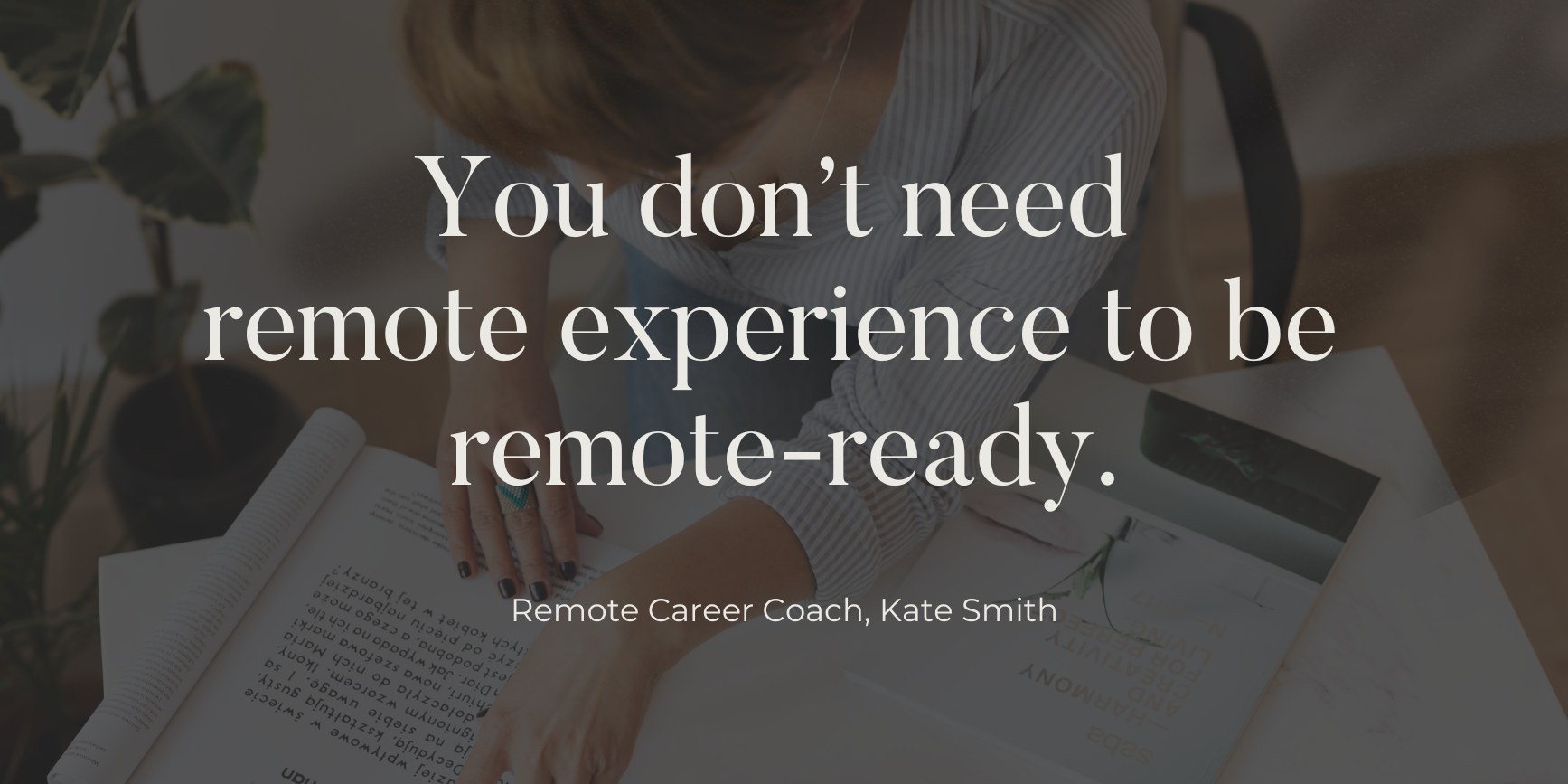You’re More Qualified for Remote Jobs Than You Think (Here’s Why)
Do you ever browse through remote job boards, such as FlexJobs, only to feel like the most under-qualified person? The impostor syndrome kicks in, and you start to doubt whether your goal of working remotely is realistic. But before you go sign up for a new course or program to improve your skills, consider that you may be more qualified for remote jobs than you think. The reason even the most qualified and talented people don’t hear back from remote companies isn’t always due to a lack of skills; it’s something else...
As a remote career coach, I help people successfully land remote jobs all the time. One of the biggest mistakes I see people make is that upon deciding they want to go remote, they immediately sign up for some “become a web developer” or “become a graphic designer” course.
Learning a new skill isn’t always the key to landing a remote job. If irrelevant to the remote role, it keeps you busy and preoccupied until that moment when you have to step outside of your comfort zone and apply to remote jobs.
Also, let me just clarify… I am huge on learning.
I love learning new things. And I think it’s important to always be learning and growing in whatever career path you’re on. However, so many people think that if they take a course on how to become a developer that remote companies will be swooping in to hire them remotely - and that’s not the case.
And, don’t get me wrong. If you work in construction and you have a passion for online marketing, then yes, go take that course. But be careful that whatever course you sign up for that it’s in a career field that you want to do and not just one you’re taking because you think it’ll be easier for you to land a remote job.
Uncovering Your Existing Skills for Remote Jobs
Now that that’s out of the way, let’s continue… Instead of signing up for the first online course you see, the better use of your time would be looking at your existing skills, getting clear on how you can be of value to a remote company, and then creating opportunities for yourself.
It’s also important that you shouldn’t restrict your job search to the same job title/position you currently hold or last held. Your skills and talents go WAY beyond that.
Let’s go through the process of uncovering what your possible remote career path could be.
First, look at ALL your skills.
This includes listing out:
What did you do at your current/last job?
What are your transferable skills? Ie. communication, organizational skills, problem-solving etc.
What are your passions and hobbies? Hint: look at where you spend the most money.
What are you the “go-to” person for among your friends?
What are your ‘life skills’? For example, maybe you overcame a deeply personal issue that you have firsthand experience working through.
Now, pause for a second. Look at ALL those skills.
Do you see it? THAT is your talent. You have so many skills that go WAY beyond what you did at your last/current job. You wouldn’t be where you are today without those skills. So don’t dismiss yourself for being underqualified so quickly. Now, let’s make some sense of all these skills.
Group your skills into “themes”
Take the big list you just created that outlines all your skills and group those skills into different “themes”/ This will make your skills list more digestible. For example, is there a theme around “helping others” or perhaps “health”?
Now, get creative.
Determine how those “themes” could be of value to a remote company
Maybe your passion for “helping others” and “heath” would make you a good community manager or customer support representative for a remote company that has an online workout app. For inspiration and to give you an idea of the type of remote jobs out there, check out the 10 most popular remote jobs or search FlexJobs’ for jobs that are 100% remote. As of writing this, there are 6,865 fully remote jobs listed on FlexJobs.
As you can see, it's not about being under-qualified. It all comes down to assessing your current skills, packaging that into some sort of value, and matching that up with remote opportunities.
Create a Powerful Remote Resume that Gets You Interviews
That being said, once you’ve determined how you can be of value to a remote company, it’s critical that you present those skills in a way that appeals to remote companies. This means having a resume that stands out among the competition. Access my FREE resume revamp checklist.
Far too often, I come across people who are talented but hear nothing back from remote companies, quite simply because their resume isn’t up to par. You can check out the top 3 ways to make your resume stand out here.
It should also go without saying that a powerful LinkedIn profile is also key to communicating those skills and the value you have to offer.
Look for Remote Jobs in the Right Places
You can be talented and have a powerful remote resume, but if you’re not looking in the right places, you still won’t have much luck in landing a remote job. Here are the best sites for finding remote work. They include:
That being said, remote job boards shouldn’t be the only thing you rely on. It’s important you create your own opportunities by using the power of social media and LinkedIn to network. A great way to do this is to:
Set up informational interviews with employees at companies you’d like to consider working for. It can also be as simple as starting a conversation with them, expressing your interest in learning more about what it’s like to work at the company.
Be active on LinkedIn within the space/industry you want to get into. This means writing thoughtful posts about the industry/space, engaging with industry leaders by leaving thoughtful comments on their posts, sharing their posts, following and engaging with the kind of companies you’d like to work for, etc.
Let your existing network know you’re open for opportunities.
Successfully landing a remote job is about understanding your existing skills and how they can be of value to a remote employer, creating a powerful resume and LinkedIn profile to communicate those skills, and using the power of the internet to network and create opportunities for yourself.
Want to turn your skills into a remote job offer? Watch my FREE 90-minute Remote Job Masterclass to learn the proven 6-step system to land a remote job with clarity, confidence, and a plan.



